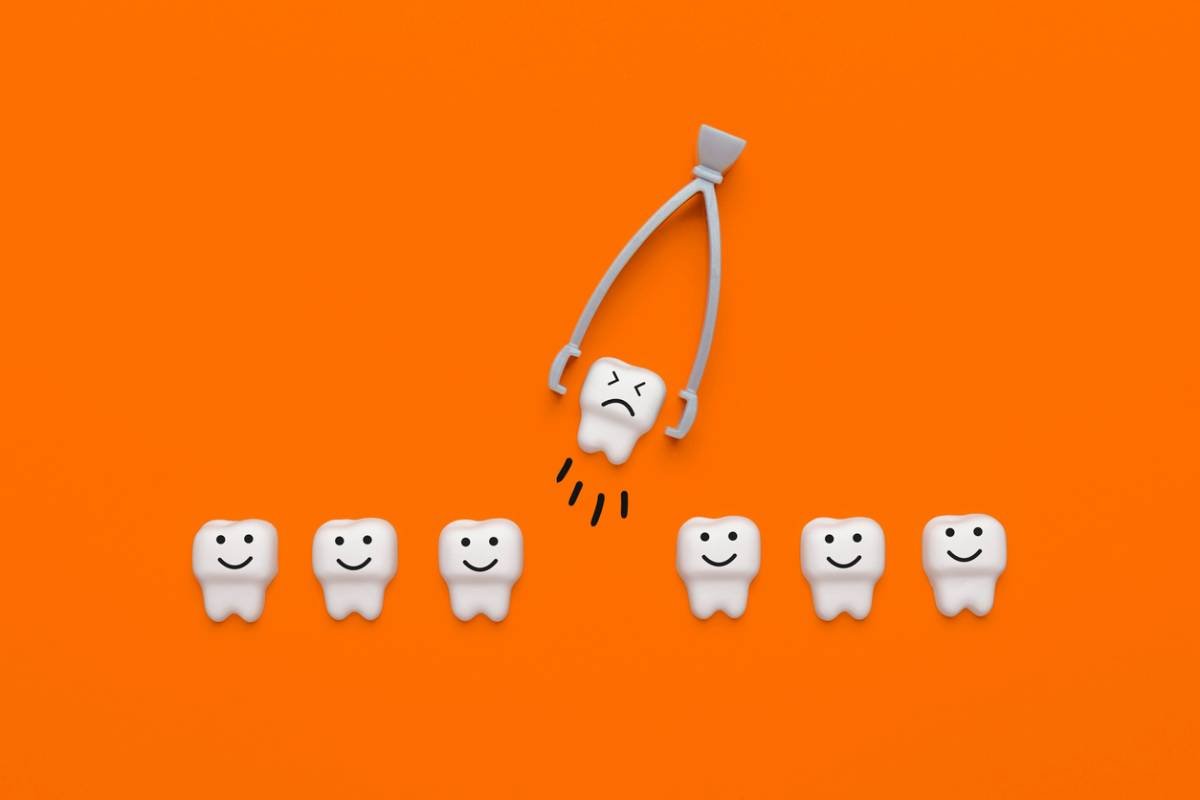Tooth extractions are a dental procedure during which your tooth is pulled. This means that your tooth is completely removed from its socket. A tooth extraction may be necessary to improve your overall oral health. Severe damage and decay can increase your risk for infection and other harmful oral health issues. Below you will find helpful tips on aftercare for a tooth extraction.
Aftercare for a Tooth Extraction
Once your tooth extraction procedure is complete, gauze is applied to the extraction site. You will need to close down your bite and apply pressure to slow down any bleeding to allow a blood clot to form. Clotting is necessary to promote healing and reduce your risk for dry sockets. A dry socket is a painful condition that occurs when the clot becomes dislodged or dissolved, exposing the underlying bone and nerves where the tooth was removed. Once the bleeding has slowed, the gauze can be removed. However, bleeding can last up to 24 hours after extraction.
Recovery can take up to one week, but most patients are back to their normal daily routine within two to three days. However, it can take your jawbone a few weeks to fully heal. For patients considering a dental implant, consider this as your timeline may take slightly longer than expected. Talk with your dentist about your tooth replacement options and the projected timeline.
Tips After Tooth Extraction
You may experience some bleeding, discomfort, and swelling after your extraction. This is completely normal and should subside within one week. After your extraction, consider the following tips in addition to your dentist’s instructions for how to care for your extraction site.
Clean Extraction Site:
It’s important to care for your extraction site by rinsing it with an antimicrobial mouthwash a few times a day. When you brush and floss your teeth, avoid the extraction site as it can easily disrupt the healing process.
Take Prescribed Medications:
You will likely be prescribed pain relievers and antibiotics. Pain relievers can help with the pain post-extraction and the antibiotics can help reduce your risk for infection. If you have an adverse reaction to your prescribed medication, contact your dentist and medical provider right away.
Focus on Rest:
It is important to focus on your recovery and avoid strenuous activity for at least 48 hours after the procedure. Raising your heart rate can increase your risk for post-operative bleeding. This can cause more pain and discomfort. Talk with your dentist in Cedar Rapids about when you can get back to your normal daily routine, including when you can resume strenuous activities.
Consider Your Diet:
It’s important to adjust your diet right after a tooth extraction. Avoid anything that is crunchy or hard and opt for soft foods. Things like applesauce, yogurt, eggs, pasta, and rice are great options. It can be really helpful to prepare in advance.
Benefits of Tooth Extraction
A tooth extraction in Cedar Rapids can be beneficial for your oral health and your confidence. Dental issues can impact your confidence and make you feel insecure about your appearance. In fact, dental issues can cause people to smile less and even avoid talking to others. Additionally, it can reduce the risk of damage caused by harmful bacteria. An extraction can also reduce your risk for other harmful dental issues. Removing your affected tooth can ensure that your oral health stays in good shape. There are also a number of tooth replacement options that look and feel just like your natural tooth.
Tooth Extraction in Cedar Rapids
A dentist may recommend extraction for a variety of reasons. While preserving your natural tooth is often a primary priority for dentists, there are some cases when extraction is necessary. Common issues include severe tooth decay, impacted teeth, severe gum disease, crowded teeth, a fractured tooth, tooth luxation, or other dental injuries.

